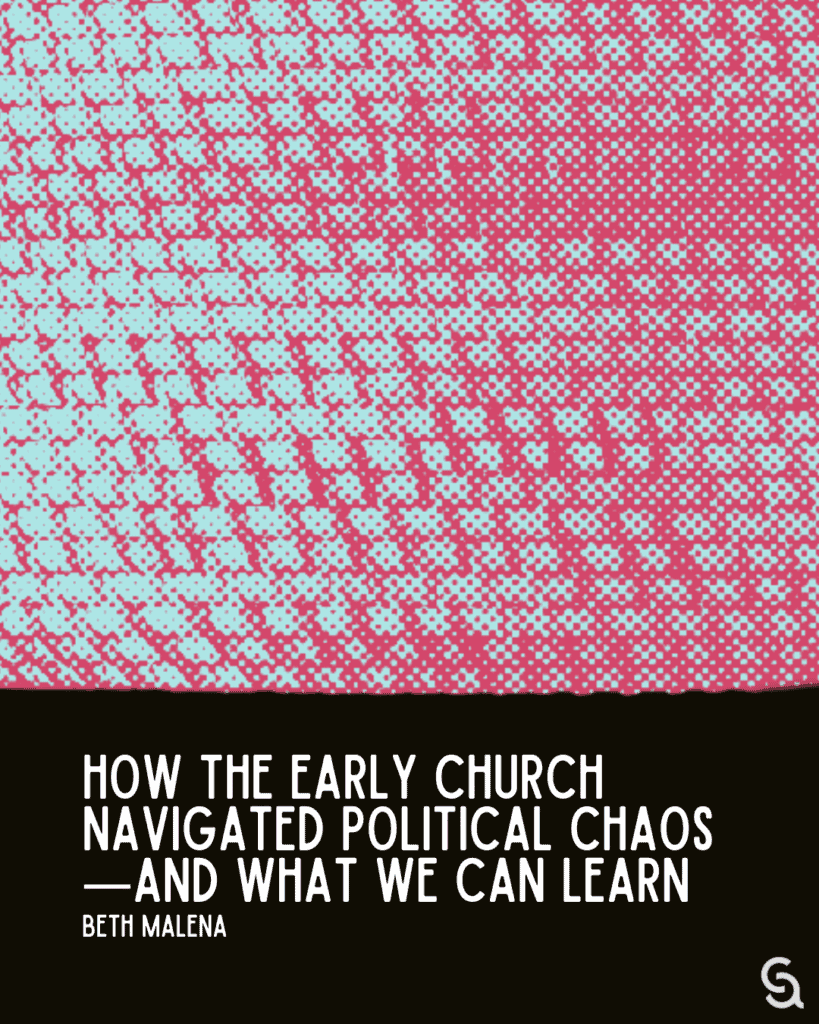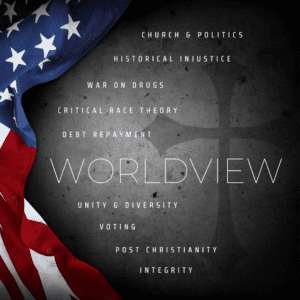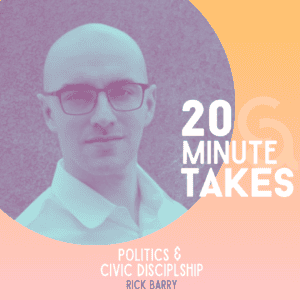 Do you ever have a book on your “to-read” pile that suddenly skips to the top of your list?
Do you ever have a book on your “to-read” pile that suddenly skips to the top of your list?
This year, I was struggling with what to preach to the queer-centric church I co-pastor in Vancouver, BC, as we collectively witnessed rising authoritarianism (not just south of us, but also in Canada), the world’s failure to stop a genocide, and the scapegoating of immigrants and trans people. Desperate for some Liberation Theology, I decided to read the 2017 commentary on the book of Acts by Black American theologian Willie James Jennings.
Jennings’ punchy, repetitive sentences and passionate, preacherly language made this the most riveting commentary I’ve read. He spins a compelling story of how the Spirit used ordinary people to announce Jesus as Lord, Lover, and Liberator of all people, and the ensuing persecution of those people by an empire that proclaimed Caesar, not Jesus, as Lord.
Much would change politically for the church in the centuries that followed. Imagine the joy of those 1st-century Christians upon hearing that nowadays, most people on earth have heard about Jesus. Imagine their horror upon discovering that this gospel is often paired with a disastrous lie: that to follow Jesus, you must also follow Caesar, who now owns your land, your resources, and possibly your body.
A core challenge for Western Christians since the time of Constantine, and one that is especially urgent today, is to untangle the gospel from the imperial powers who capture the church’s imagination and allegiance, and to proclaim Jesus’ liberation of all things.
Here are three ideas Jennings emphasizes in Acts that I find helpful for navigating this task.
Cooperate with the Spirit’s Joining
Empires always consolidate power, whether by assembling people through colonization and assimilation, or by segregating them through hierarchies, systems, and borders. As for the Spirit, her goal is always joining diverse people together into one body, not for power, but for love and common flourishing.
Jennings describes “an erotic God who seeks to place in each of us desire for those outside of us, outside our worlds of culture, clan, nation, tribe, faith, politics, class, and species.”(1)
In the opening verses of Acts, before Jesus’ ascension, the disciples ask Jesus, “Is this the time when you will restore the kingdom to Israel?” (Acts 1:6). The only power they imagine receiving is a nationalist power to rule and conquer; but instead, the Spirit gives them power to comprehend the mother tongues of foreigners, enabling them to join in mutual understanding without assimilating or watering down the beauty of their unique cultures.
The rest of Acts describes the Spirit bringing together more unlikely people, “driving a disciple where the disciple would not have ordinarily gone and creating a meeting that without divine desire would not have happened.”(2)
This includes my favorite meeting, between Philip and the Ethiopian eunuch, who was both a sexual minority (like me!) and a foreigner, and whom Philip nonetheless baptized and welcomed in.
Instead of joining, progressive communities today tend to fragment and segregate. We mimic the purity culture of conservative churches, cutting off any who transgress, instead of imagining Jesus’ ability to transform people like he transformed Saul.
How might the Spirit still be conspiring today to form unlikely partnerships between folks at different stages of understanding, from different denominations and faith backgrounds?
Participate in the Common
In the book of Acts, the Holy Spirit doesn’t merely draw diverse people together; she holds them even closer by inviting them to be open-handed with all that they have.
Jennings calls this sharing of space, resources, and vision “the common,” forged by Christ followers whose new identity results in less investment in systems of class, power, and property ownership. The early Christians practiced radical hospitality by opening their homes to traveling disciples and hosting church gatherings, or selling their homes and sharing the profits. They fed widows and shared the Eucharistic meal at Love Feasts, overturning hierarchies through table fellowship.
The invitation to participate in “the common” is no ancient relic. Today, as leaders defund social systems to line the pockets of the powerful, we have ample motivation to meet one another’s needs.
Whether we experiment through common purses, mutual aid networks, sliding scale systems, community kitchens, neighborhood fridges, co-housing, guest houses, or forming chosen families, we are limited only by the depth of our creativity and trust in a Creator whose abundance is enough for everyone.
Expect Confrontation
The Spirit’s invitation to integrate across differences and to practice common life is a direct challenge to the segregation and commodification of the empire. Unsurprisingly, we find the empire retaliating, with story after story of arrest, imprisonment, torture, and martyrdom in the book of Acts, as the early Christians follow the same path of costly confrontation that Jesus walked before them.
Peter and his compatriots also follow Jesus by refusing to return the state’s violence with their own violence, perhaps recalling how Jesus healed Malchus’ ear after Peter sliced it off (John 18:10).
Jennings elaborates, “All violence is rooted in the false belief that we can bring life out of death and create the good out of the destruction of what we deem bad. Violence has always been the tool of those who pretend to the throne of the Creator.”(3)
Despite these stories from Acts, modern Christians often falsely assume that courthouses and prisons are moral systems that only imprison immoral people. Instead, our call is to expose the empire’s ongoing systemic violence, to creatively and nonviolently subvert it. We must use whatever privilege and platform we have, like Paul did with his Roman citizenship (Acts 21-26), taking advantage of every opportunity to announce the coming day when Jesus will set all captives free.
In times of political chaos, our task is to courageously confront violent systems, forge brave allegiances, and pursue common life with unlikely allies. May we discover, as Jennings did, that as disruptive and chaotic as empires can be, the Spirit is even more disruptive, and will continue to act through God’s people until all things find their place of belonging in Christ.
Endnotes
(1) Willie James Jennings, Acts: A Theological Commentary on the Bible (Louisville: Westminster John Knox, 2017), 35.
(2) Ibid., 104.
(3) Ibid., 232.
 Beth Carlson-Malena grew up as a Baptist pastor’s kid in the Canadian Prairies, and now lives with her wife, Danice, on unceded Coast Salish land, also known as Vancouver. Beth co-pastors a trans-denominational church called Open Way that she helped launch eight years ago. Last year, she and her wife started up Pride + Joy Ceremonies to expand her much-loved side-gig: creating and hosting weddings and rituals to mark milestones in people’s lives. Beth spends her free time bird watching, giving tours at her local community gardens, organizing for climate justice and for a free Palestine, and reading/watching science fiction.
Beth Carlson-Malena grew up as a Baptist pastor’s kid in the Canadian Prairies, and now lives with her wife, Danice, on unceded Coast Salish land, also known as Vancouver. Beth co-pastors a trans-denominational church called Open Way that she helped launch eight years ago. Last year, she and her wife started up Pride + Joy Ceremonies to expand her much-loved side-gig: creating and hosting weddings and rituals to mark milestones in people’s lives. Beth spends her free time bird watching, giving tours at her local community gardens, organizing for climate justice and for a free Palestine, and reading/watching science fiction.


